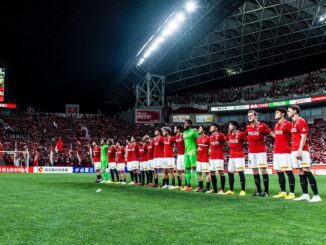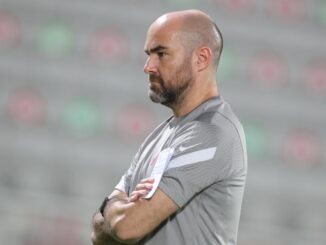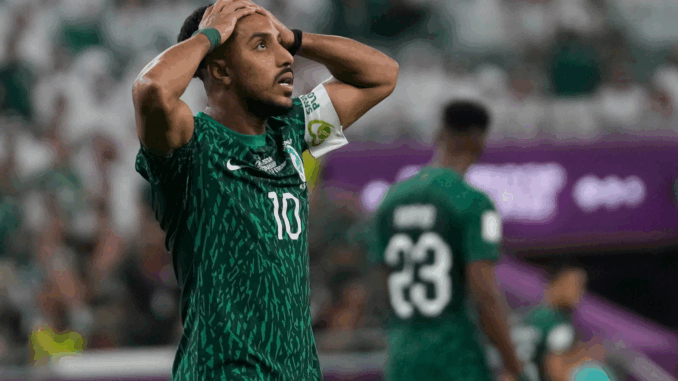
As they lick their wounds and look ahead to October’s do-or-die Fourth Round, which they will likely host, Saudi Arabia will look back and lament a number of missed opportunities that stifled their campaign before it even got going.
Having qualified automatically for the past two World Cups, this is uncharted territory for Saudi Arabia who must simultaneously look back at where things went wrong, but also have an eye on the crunch games to come in October.
When they undertake their post-mortem, there’s one hard conversation coach Herve Renard needs to have with his best player, Salem Al-Dawsari.
So good is the former AFC Player of the Year that it’s hard to believe he has any chinks in his armour, but penalty taking is clearly one of them.
Across his career in green he has taken 11 spot kicks for the national team and missed six of them. With a record like that it’s hard to believe that he’s still the designated penalty taker in the side.
Fans of the Green Falcons will still be haunted by his miss against Poland at the World Cup in 2022.
While the win over Argentina was the headline result, their best performance came against Poland in their second match at Education City Stadium. Shortly after falling behind to Piotr Zieliński’s strike, and on the stroke of half-time, Al-Dawsari had the chance to square the ledger after Saleh Al-Shehri was fouled in the area.
He missed. Saudi Arabia lost.
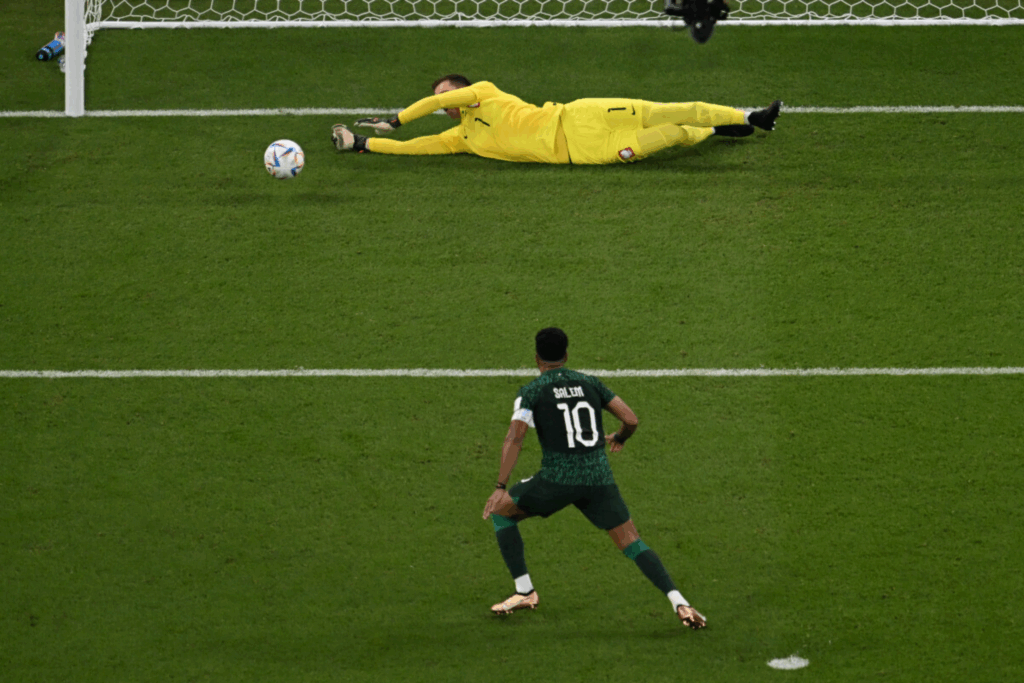
Whether by stubbornness or lack of an alternative, Al-Dawsari has remained on penalty duty for Saudi Arabia, but it hasn’t got any better.
With scores locked at 1-1 with Indonesia in the opening game of the Third Round with just over ten minutes remaining, Saudi Arabia were awarded a penalty and a chance to seal a crucial three points to start their campaign.
He missed. The game ended 1-1.
In the next window, at home to Bahrain, Marwan Al-Sahafi was fouled inside the area by Abdulla Al-Khalassy after just 14 minutes. Al-Dawsari stepped up again.
He missed. Again. The game ended 0-0.
While we’ll never know how those games would’ve ended had those goals gone in, the easy analysis is that it’s four points needlessly squandered. Three wins from four in theory, became one win from four in reality and saw Roberto Mancini lose his job.
There was one flashpoint towards the end of the Italians tenure that spoke to friction in the dressing room between players and coach. After the draw with Bahrain, a result that really put the Green Falcons on the back foot, Mancini faced a grilling from the local media, with one prickly question in particular: ‘why does Salem still take penalties?’
His response, given as he was turning and walking away? “Ask Salem!”
Rumours swirled that the Al Hilal superstar had ignored a directive from Mancini to not take penalties. Whether that’s accurate or not only they will know, it was clearly a sore point for Mancini who was out of a job just days later.
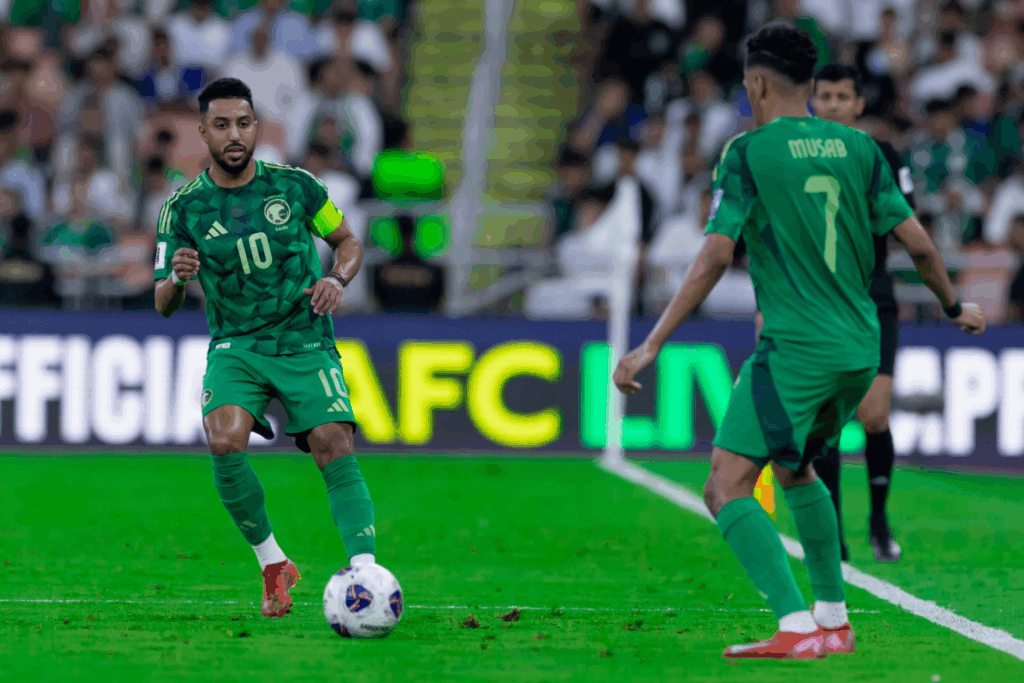
With extra points on the board, Tuesday’s final qualifier against Australia in Jeddah could’ve been properly live, instead of the hail mary long shot that it was. They may even have entered in the ascendency.
As it was, they were chasing a win by five goals and while that prospect had long since evaporated after conceding twice to turn a 1-0 lead into a 2-1 deficit, they had a chance to take something from the game when they were awarded yet another penalty.
Despite his earlier misses, it was Al-Dawsari who once again stepped up to the plate. Third time lucky, perhaps?
He missed. Again. Saudi Arabia lost 2-1 as the fans made their feelings known by either staying away, or leaving early with the sight of a largely empty stadium symbolic of their campaign.
“The players responded well after the second goal, and we wasted many opportunities, just as we did in the qualifiers,” Renard lamented post-game.
“We played against a tough and strong team, especially in terms of physical strength. The players did their best. The difference is that Australia and Japan have more points. We wasted many opportunities. Imagine that we missed three penalty kicks here in Jeddah.”
Imagine, indeed.
Instead of attacking qualification from a position of strength, they were always playing catch up. As a result, the narrative around them changed. They were always under pressure, desperate to keep in touch and it showed in their performances.
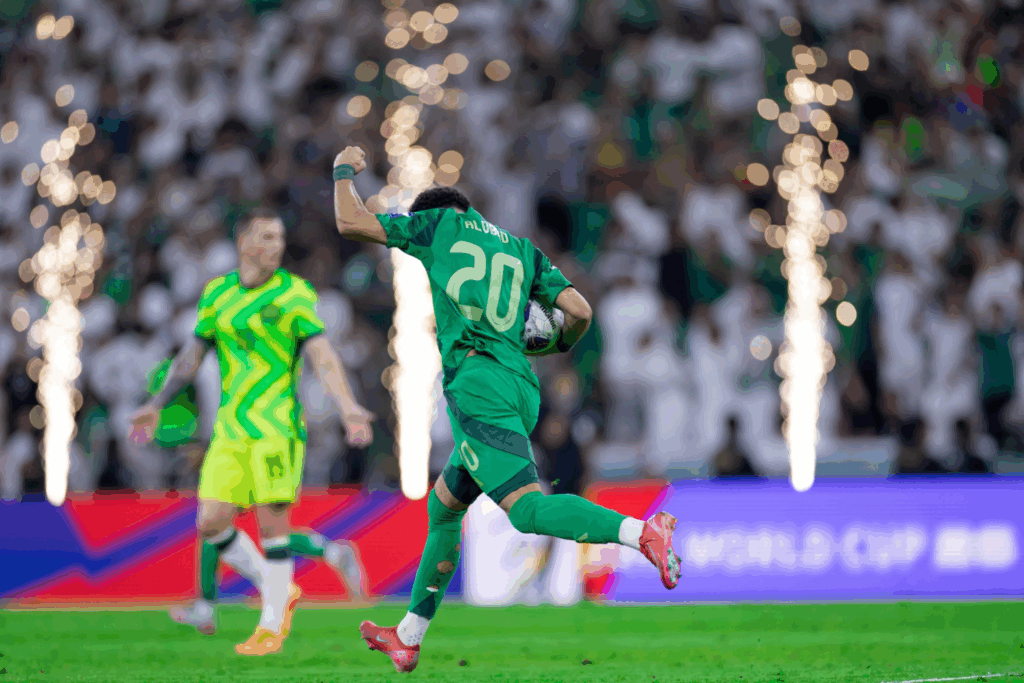
Saudi Arabian players are confidence players. When things are going well, they play with swagger and confidence, almost a cockiness even. That’s when they’re at their best and most dangerous.
On the flip side, when things aren’t going their way, they have a tendency to lose focus and lose control, and play within themselves, and that is the version of the Green Falcons we saw this campaign.
One of the reckonings they now must face is whether the largesse spent on improving the global profile of the Saudi Pro League, and the influx of global stars that has come with it, has actually been of benefit to the national team?
While it’s an easy narrative to spin that the increase in the foreign player limit has stifled opportunities for domestic players, and there is an element of truth to that, the debate is more nuanced.
There are players – Al-Dawsari, for example – that are playing at a far higher level now than they ever have been. The Al Hilal superstar has scored and assisted almost as many goals in the past three seasons as he did the eight seasons combined before that.
A young talent like Musab Al-Juwayr has also been allowed to blossom at Al Shabab and he stands to be one of the most important players of this side going forward.
Meanwhile, six players from their starting XI against Australia played roughly the same minutes as Takefusa Kubo did at Real Sociedad this season, and their starting XI against Australia averaged 28 games and 70 minutes of game time.
In an ideal world, both of those numbers would be higher, but they’re also not catastrophic numbers and both are on par with Japan’s starting XI against Indonesia, and there’s never a narrative about a lack of game time for Japanese players.
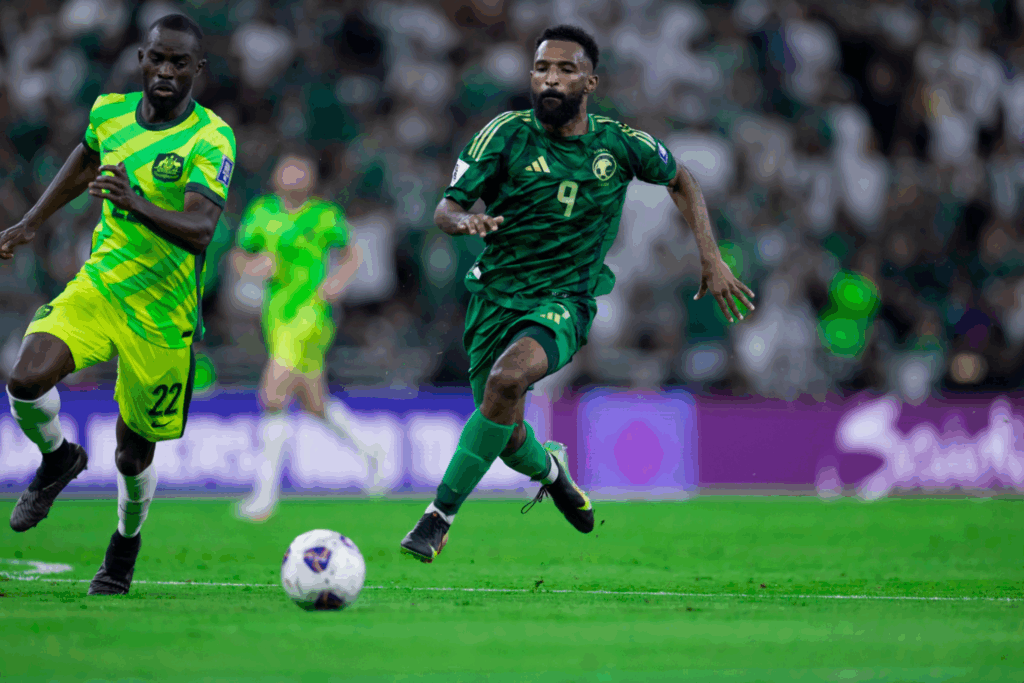
On the flip side, a player like Firas Al-Buraikan, who was a standout for Al Ahli last season with 17 goals and eight assists, saw his opportunities limited by the arrival of Ivan Toney. The Englishman’s arrival saw Al Buraikan’s game time drop by 18 percent, which impacted his effectiveness.
Seventeen goals and eight assists last season became just three goals and five assists this season. As Saudi Arabia struggled for goals this campaign, did having their two leading strikers – Al-Buraikan and Al Ittihad’s Saleh Al-Shehri – consigned to bit-part roles have a detrimental effect?
It’s a question the leaders of Saudi football will need to confront.
Saudi Arabia’s problems go well beyond just playing time, and Renard has just a few months to fix those issues otherwise the 2034 World Cup hosts will be watching from the sidelines next summer.
The first place to start is by having a quiet word to Al-Dawsari; no more penalties, please.
Photos: X/SaudiNT


